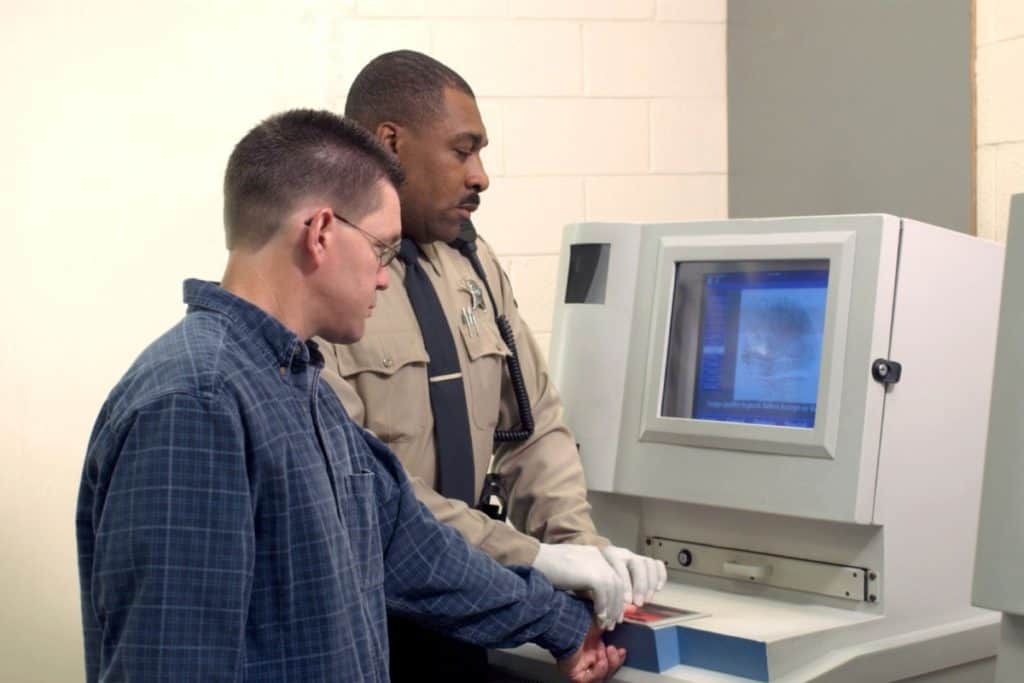(**) Disclosure: This post may contain affiliate links, meaning RealEstateCareerHQ.com will get a commission if you decide to make a purchase through the links, but at no additional cost to you.
To become an escrow officer in Texas, you must be covered by a surety bond, submit an application and $35 fee to the Texas Department of Insurance, and pass the fingerprint background. You should also keep up to date with the Texas escrow laws.
An escrow officer plays a crucial role in a real estate transaction. To help you better understand this occupation, I spent hours going through the Texas Insurance Code, the Title Basic Manual and the Texas Department of Insurance’s website.
To give you a general idea, an escrow officer license in Texas is for
- An employee that works directly for the title insurance agent or direct operation
- An attorney acting as an escrow officer
- An employee of an attorney who is a Texas licensed escrow officer with the appointing title insurance agent or direct operation
In this guide, you’ll find out the steps to become an escrow officer in Texas, income updates, and FAQ about this profession. I’m confident that this valuable info may lead you to make a better-informed career decision.
But before we start, I want to give a brief disclaimer. This post is not intended as legal advice or state/federal escrow training. It is for general information only. Please check with your state whether escrow officers/agents are utilized in the closing process. Always follow your State laws and best practices.
A Table Summary to Become an Escrow Officer in Texas
| Course | Exam | Surety Bond | License Period | Fees |
|---|---|---|---|---|
| No | No | Yes | 2 year | $45 (including application, appointment) |
5 Steps to Become an Escrow Officer in Texas

Step 1: Work for a Title Insurance Agency
Unless you are running your own escrow company. In Texas, you must work with a licensed Title Insurance Agency to provide escrow services. On the application, you will be asked to provide the TDI license number and Firm ID number.
You may search for employment through online job forums, LinkedIn groups or the Texas Land Title Association.
Step 2: Conduct a background check

It is to ensure you are a trustworthy professional and will serve the public’s best interest. After all, an escrow officer will handle a significant amount of other people’s money on a day-to-day basis.
The Department may deny an application due to a convicted felony, a misdemeanor involving dishonesty or disciplinary action.
1. Do you have any pending misdemeanor or felony charges (by indictment, information, or any other instrument)?
2. Have you been convicted of any misdemeanor or felony offense?
3. Have you had adjudication deferred on any misdemeanor or felony charge or offense?
4. Have you served any period of probation for any misdemeanor or felony offense?
Quote from Application for escrow officer license
If you answer “Yes” to any of the questions, you need to attach further documentation and explain the incident.
Furthermore, to determine your person’s character, you need to obtain a fingerprint background card. This can be done at the IdentoGo. Make sure to use service code 11G6QF when making the appointment and that the receipt shows the result is sent to the Texas Department of Public Safety.
Step 3: Provide surety bond details

Each escrow officer must be covered by a surety bond. This is to protect clients against wrongdoing, which results in financial damage. Then they can file a claim against the bond.
According to the Insurance Code Sec. 2652.103, the surety bond amount depends on your situation.
- If you are a bona fide resident of Texas, then $5,000 is required.
- If you are a bona fide resident of a state adjacent to Texas, then $10,000 is required.
Typically speaking, the maximum amount of bond required will be $50,000.
If you are an employee, your employer’s surety bond will likely cover you. If you are running your own escrow business, you will need to get this coverage for yourself and each escrow officer working for your firm. Here’s the Texas escrow officers schedule bond form.
If you do not want to pay the surety bond premium, you may also fulfill this requirement by providing a cash deposit or letter of credit.
But keep in mind that the surety bond is to protect the consumer and not you as an escrow officer. If you want coverage for your practice, you may look into Error and Omission Insurance. (E&O)
Step 4: Submit an application to the Texas Department of Insurance

You must fill out the Application for escrow officer license. This application has three sections. The first covers some basic questions about you. (i.e., name, date of birth, address, SSN, driver license). Section 2 and 3 are questions on legal offenses, license, and litigation.
You also need to attach the:
- Application fee of $35
- Escrow officer appointment (There is a $10 fee)
- IdentoGo fingerprint receipt
Note that for both the application and appointment form, you must get a notary public to sign and place a seal on them. This is to declare that the statements you provided are true and correct.
Once all the required documents are ready, you may mail them to:
- Texas Department of Insurance, Title Licensing, Mail Code 107-TL, PO Box 149104, Austin, Texas 78714-9104
Alternatively, you may submit the application through the Sircon system. I prefer electronic submission. The turnaround is quicker, and less paper usage is also good for the environment.
Step 5: Study the Texas Escrow Laws

The financial well-being of many people depends on the accuracy and completeness of your escrow services. You must equip yourself with the necessary escrow knowledge.
When you read the:
- Texas Insurance Code Chapter 2652. ESCROW OFFICERS
- Title Insurance Basic Manual – Administrative Rules: L-2
They pretty much cover everything you need to know about being an escrow officer or agent. They are indeed a useful reference if you want to know more in-depth about each escrow topic.
However, its wording is more technical and formal. So I would go through the FAQ page on the Department’s website first, then read them only if I need further clarification.
I’ll leave their links in the reference section at the end of the post.
How long does it take to become an escrow officer in Texas?
It takes 2 to 8 business days to become an escrow officer in Texas. It also depends on the completeness of the required documents and whether the application is submitted electronically or by mail.
Unless otherwise notified by TDI, the escrow officer may act as an escrow officer for the appointing title insurance agent or direct operation after:
a. the second business day after the date the form is submitted to TDI through TDI’s designated electronic process; or
b. the eighth business day after the date the form is submitted to TDI by other means.
Quote from L-2. TITLE INSURANCE ESCROW OFFICER – ESCROW OFFICER APPOINTMENTS
How much does it cost to become an escrow officer in Texas?

It takes approximately $45 to become an escrow officer in Texas. Here’s the breakdown:
- Escrow officer application fee: $35
- Appointment fee: $10
There could be other expenses involved, such as fees for background check, banking, accounting, business insurance, E&O coverage, laptop, and other business supplies. Here’s a resource page with a list of incredible business tools that I like.
How much do escrow officers make in Texas?

Escrow officers in Texas make $48,804 on average. The income range usually falls between $39,501 and $59,165. (+) The earning would depend on your skill level, location, years of experience and also the number of transactions you can successful closed.
Furthermore, the type of property that you specialize in working with may also impact your income.
As I’m reviewing the income figures, Commercial Escrow Officers in Texas have a higher average annual income of $60,186. They mostly earn between $41,201 to $80,187. (-)
Source: (+) Salary.com – Oct 28, 2020; (-) ZipRecruiter.com- Oct 25, 2020
Is there a demand for escrow officers in Texas?

Some states require an attorney to handle the real estate closing and not an escrow office. The good news is, according to the First American Title, Texas is not an attorney state.
As I’m writing this post now, I see many job listings for escrow officers in Texas. However, they tend to look for applicants with at least two years of escrow industry experience. You may get a foot in the door by working as an escrow assistant first.
Texas is a state with over 29 million people reside in it. According to the Texas REALTORS Housing Report, there were 357,238 homes sold in 2019. As long as people buy and sell properties in the state, there is a demand for escrow officers in Texas.
When to renew the escrow officer license in Texas?
You must renew the escrow officer license every two years by filling out the license renewal application. There is a $35 renewal fee. Once again, the renewal application needs to be signed and stamped by a notary public.
To make sure that your knowledge on the escrow laws are up-to-date, the Department requires you to complete 15 hours of continuing education for each license period.
The continuing education must include the following topics:
(1) basic principles and coverages relating to title insurance;
(2) recent and prospective changes in those principles and coverages;
(3) applicable rules of the commissioner and laws;
(4) the proper conduct of the license holder’s business; and
(5) the duties and responsibilities of the license holder.
Quote from Texas Insurance Code – Sec. 2652.058 Continuing Education
Keep in mind to renew the license on time. Else, there will be a
a late fee of $17.50 and an interruption to your escrow practice.
Where can I obtain more details about being an escrow officer in Texas?
You may contact the Texas Department of Insurance:
- TDI-TitleLicensing@tdi.texas.gov,
- 512-676-6500
You may also fill out their online form.
Helpful tips to build your escrow services career in Texas
Tip#1: Network with other real estate professionals in Texas

In addition to connecting with other escrow companies, networking with other real estate professionals would be a great idea. Mortgage agents, lenders, notary loan signing agents, and realtors can all provide you with valuable insight, which could help your career building in the long haul.
Here’s a list real estate professional groups on our resource page. Hope this will be useful to you.
Reference:
- Texas Department of Insurance – Escrow Officer (source)
- Texas Insurance Code, section 2652 (source)
- The Title Basic Manual, sectionVI,L-2 (source)
- Salary.com – Escrow Officer Salary in Texas (source)
- ZipRecruiter.com – Commercial Escrow Officer Salary in Texas (source)
- US Census Bureau – New Residential Sales (source)
- National Association of REALTORS – Quick Real Estate Statistics (source)
- Texas REALTORS – 2019 Housing Report (source)
- First American Title- Your Guide to Real Estate Customs by State (source)

